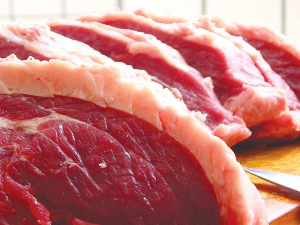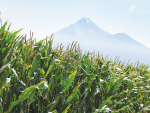The benchmark index of international food commodity prices rose in April for the first time in a year, amid increases in world quotations for sugar, meat and rice, according to the Food and Agriculture Organization of the United Nations (FAO).
The FAO Food Price Index, which tracks monthly changes in the international prices of commonly-traded food price commodities, averaged 127.2 points in April 2023 up 0.6% from March.
At that level, the index was 19.7% below its level in April 2022, but still 5.2% higher than in April 2021.
The FAO Meat Price Index rose 1.3% during the month, driven primarily by higher pig meat quotations, followed by poultry prices, which increased amid Asian import demand and production curbs spurred by animal health issues.
International bovine meat prices also increased due to a decline in cattle supplies for slaughter, especially in the United States.
The FAO Sugar Price Index rose 17.6% from March, reaching its highest level since October 2011. The FAO says this is largely due to reduced production expectations and outcomes in India, China, Thailand, and the European Union caused by dry weather conditions as well as a slow start to the sugarcane crop harvest in Brazil, and higher international crude oil prices which can increase demand for sugarcane-based ethanol.
In the meantime, price indices for several other major food commodity categories continued their declining trend.
The FAO Cereal Price Index dipped 1.7% from March and averaged 19.8% below its April 2022 value.
International wheat prices declined by 2.3%, due mostly to large exportable availabilities in Australia and the Russian Federation.
World maize prices fell 3.2% as supplies in South America seasonally increased with ongoing harvests.
On the other hand, against a backdrop of reduced harvests caused by higher input costs and adverse weather, especially outside of Asia, sales to Asian buyers sustained an increase in international rice prices.
The FAO Vegetable Oil Price Index declined by 1.3% in the month, registering its fifth consecutive monthly decline. World palm oil prices were stable, while quotations for soy, rapeseed and sunflower oils declined in step with seasonal harvest pressure from a potentially record soybean crop in Brazil.
The FAO Dairy Price Index dropped by 1.7%, impacted by the persistent slack global import demand for milk powders and higher cheese export availabilities in Western Europe.
FAO chief economist Maximo Torero says it is important to continue to track the evolution of prices and the reasons for increases in prices.
“As economies recover from significant slowdowns, demand will increase, exerting upward pressure on food prices,” he says.



















